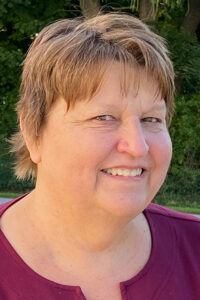
JoAn Beckman loved being an emergency nurse and helping people through the traumas they experienced. She enjoyed it so much that for most of her career, she rarely stopped to think about her own well-being.
But when a truck struck her as she crossed the road on her way to teach a class, she was suddenly a patient in her own emergency department.
“I was in the trauma bay working the night before and 12 hours later was a patient in the trauma bay,” she said. “I felt like my mental health was fine, and I was very resilient, but I realized when they were cutting my clothes off, they were cutting off my ED nurse armor that I had been building over the years.”
Beckman shares how the aftermath of the accident opened her eyes to the importance of mental health care for emergency nurses in an Emergency Nursing 2021 Encore session launching Wednesday. Naked in the Trauma Bay, PTSD and Me, one of many EN21 second-act sessions, will be available for viewing Oct. 13-Jan. 31.
“We do a great job teaching people how to take care of people, how to do procedures, how to document — all of that. But up until COVID-19, [self-care] was the elephant in the room,” she said. “Nobody talked about it. When you had a difficult death, nobody said, ‘How did you deal with that?’ Those feelings were stuffed, and you moved on to the next patient.”
Invitations to have drinks at the bar after a bad shift are more common, Beckman noted. Online shopping and stress eating are also ways many emergency nurses cope with stress.
“We build up that armor to protect us instead of healing from the trauma we see every day,” she said. “A healthy way to deal with our stress and what we see and do is to really talk about it.”
Many new and experienced nurses alike are reluctant to show any perceived sign of weakness. When Beckman returned to work after recovering from her accident, her peers were surprised she admitted to having post-traumatic stress disorder. But PTSD is so awful, she said, she was compelled to make her story public.
“We’re groomed and conditioned to be there for people, and we always put ourselves last,” Beckman said. “I think we can be much more effective when we put ourselves first in the sense of taking care of our emotional, mental, physical and spiritual health.”
When this doesn’t happen, some emergency nurses leave the specialty or even the nursing profession altogether. Beckman didn’t give up on nursing. She no longer works in the ED, but she continues to practice critical care in an emergency psychiatric assessment, treatment and healing unit.
“We need to talk about it instead of just leaving,” Beckman said. “When you look nationwide, people are leaving the ED when we need them so much.”
She would like to see discussions about self-care taking place at the unit level. Emergency nurses should be able to tell their managers they need time off for mental health care in the same way they need time off for a physical ailment, Beckman contends.
“We’re not quite there yet, but I hope we get there because we need those compassionate, empathetic, strong nurses to be stretcherside,” she said.
EN21 Encore sessions are available on the virtual meeting platform.
Registration, which includes access to EN21 On-demand content, is available for $199 until Oct. 20, after which the registration price increases to $250. Registration closes Dec. 1.

